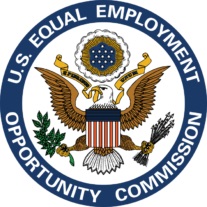- within Employment and HR topic(s)
- with Senior Company Executives, HR and Finance and Tax Executives
- in Canada
- with readers working within the Law Firm industries
The EEOC has updated its Technical Assistance Guidance ("Updated Guidance") related to COVID-19 and, in particular, what employers are permitted to do with respect to vaccination programs and incentives for employees to get vaccinated. The EEOC's Guidance was prepared prior to the CDC's updated guidance for fully vaccinated individuals and does not specifically address employer questions related to the treatment of unvaccinated and vaccinated employees in the workplace. The EEOC indicated that it is currently considering any impact the CDC's guidance might have on the guidance it has provided to date. Although the EEOC leaves much of its guidance from December 2020 in place, here are the key changes and additions in the Updated Guidance.

Mandatory Vaccination Programs
Although the majority of employers in the U.S. have not mandated that their employees get the vaccine, the Updated Guidance confirms that employers can require that employees be vaccinated in order to physically enter the workplace, subject to reasonable accommodations required for individuals with disabilities or religious objections, as previously discussed. The Updated Guidance provides additional examples of reasonable accommodations that an employer can consider that would allow an unvaccinated employee to come into the workplace, including wearing a face mask, maintaining social distance from others, working a modified shift, periodic COVID-19 testing, being allowed to telework or, as a last resort, reassignment to another position.
The EEOC recommends as a "best practice" in the Updated Guidance that an employer introducing a mandatory COVID-19 vaccination policy notify all employees that the employer will consider requests for reasonable accommodation based on disability or religious objection and that such requests will be considered on an individualized basis. The Updated Guidance also affirmatively states that employees who cannot get vaccinated because of disability or religious objection are responsible for notifying their employer of the need for an exemption from the mandatory vaccine requirement. In this regard, the EEOC recommends that employers train managers responsible for communicating with employees about the employer's vaccine requirement on how to recognize a request for an accommodation and to whom in the organization they should refer the accommodation request for full consideration.
In addition to these accommodation issues, the Updated Guidance instructs employers to assess whether a vaccine requirement may have an adverse impact on or disproportionately exclude employees based on their race, color, religion, sex, national origin, or age. Specifically, the Updated Guidance states that "[e]mployers should keep in mind that because some individuals or demographic groups may face greater barriers to receiving a COVID-19 vaccination than others, some employees may be more likely to be negatively impacted by a vaccination requirement." This assessment will likely differ from workplace to workplace and region to region.
Also, in the Updated Guidance, although the EEOC maintains the distinction it drew in the December guidance between mandatory programs in which an employee receives the vaccine from a third party and those in which the employer administers the vaccine, it slightly restates the standard. In the December guidance, the EEOC required a showing that a mandatory vaccine program was job-related and consistent with business necessity where the employer or a third party under contract with the employer administers the vaccine. In the wake of the December guidance, questions arose about what type of contractual relationship triggered this heightened justification for a mandatory vaccine policy. In the Updated Guidance, the EEOC clarifies that the relationship must rise to the level of agency, stating that the heightened showing applies if the vaccine is administered by the employer or its agent.
Voluntary Vaccine Programs
The Updated Guidance clarifies that employers who do not require that employees get the vaccine may still opt to have employees disclose their vaccine status, reaffirming that, as long as questions are limited to whether or not an employee is vaccinated (including the type of vaccine and dates administered) and do not inquire as to why an employee may have chosen not to get the vaccine, this inquiry is not considered a "disability-related" inquiry under the ADA. Also, even where an employer provides the vaccine directly or through an agent, the pre-vaccination questions are permissible under the ADA, provided that an employee's decision to answer the questions are voluntary.
Request for Accommodation from Vaccinated Employees
The EEOC addresses in the Updated Guidance that fully vaccinated employees may still be entitled to reasonable accommodation based on an underlying medical condition, instructing that employers must consider requests from fully vaccinated employees with a disability who request an accommodation because of a continuing concern that the employee faces a heightened risk of severe illness from a COVID-19 infection. The Updated Guidance explains that there are some employees who are immunocompromised and, as a result, the vaccine may not offer them the same measure of protection as other vaccinated individuals. In this situation, employers must engage in the interactive process with such employees and provide an accommodation, absent undue hardship.
Vaccine Requirements for Pregnant Employees
The EEOC Guidance also addresses requests for accommodation from employees who may request an exemption from a COVID-19 vaccine requirement because of pregnancy. In addressing these requests, the EEOC states that employers must ensure "that the employee is not being discriminated against compared to other employees similar in their ability or inability to work. This means that a pregnant employee may be entitled to job modifications, including telework, changes to work schedules or assignments, and leave to the extent such modifications are provided for other employees who are similar in their ability or inability to work." This portion of the Guidance seems to impose a duty on an employer to accommodate pregnant employees who do not get the vaccine in the same manner that the employer is accommodating employees who cannot get the vaccine because of disability or religious objection. The Guidance specifically directs employers to ensure managers and human resources personnel know how to handle such requests to avoid disparate treatment in violation of Title VII. Employers will want to carefully assess any such request and keep in mind accommodations that have been provided to other employees who are unable to get the vaccine.
Confidentiality of Proof or Confirmation of Vaccination
The EEOC makes clear in its updated guidance that documentation concerning proof or confirmation of vaccination is a medical record subject to the strict confidentiality requirements of the ADA.
In its prior December 2020 guidance, the EEOC had stated employers could ask for proof of vaccination status from employees and further instructed employers to caution employees not to include "medical information" with their proof of vaccination. This raised questions about whether proof of vaccination itself was considered confidential medical information within the meaning of the ADA. The EEOC has now answered that question in the affirmative.
This pronouncement means that employers must treat proof or confirmation of vaccination as a confidential medical record under the ADA, which requires that such documentation be stored separately from the employee's personnel file and once collected by Human Resources only shared as follows:
(i) Supervisors and managers may be informed regarding necessary restrictions on the work or duties of the employee and necessary accommodations;
(ii) First aid and safety personnel may be informed, when appropriate, if the disability might require emergency treatment; and
(iii) Government officials investigating compliance with this part shall be provided relevant information on request.
29 CFR § 1630.14. Employers who have already collected this information should move quickly to make sure that it is being stored and/or shared in a manner consistent with these requirements and update their policies and procedures accordingly.
Vaccine Incentives
The EEOC also confirmed the applicability of its wellness regulations under the ADA regarding vaccine incentives. The EEOC's updated guidance confirms that, under the ADA, if the employee receives the vaccine by a third party, i.e., not the employer or its agent, the employer can offer an incentive of any kind and require proof of vaccination form the employee before providing the incentive. If, however, the employee receives the vaccine from the employer or its agent, then there are limits on the type of incentive that may be offered. Specifically, it must not be "so substantial as to be coercive," according to the EEOC's update guidance. This is consistent with the voluntariness requirement contained in the EEOC's wellness rules under the ADA as we explain in our prior blog about the applicability of the EEOC's wellness rules to vaccine incentives. Although the EEOC explained in its updated guidance that a "very large incentive" could make employees feel pressured to disclose protected medical information (by responding to medical pre-screening questions when getting the vaccine from the employer or its agent), the EEOC did not give examples or set any specific parameters for what is or is not a "very large incentive." Employers who plan to provide the vaccine directly or through an agent, and are also offering vaccine incentives that might be considered "very large," will want to reconsider their approach.
Employers need to review their current practices and policies regarding mandatory vaccinations programs, collection of proof of vaccination and vaccine incentives, as well as their accommodation processes to ensure compliance with the Updated Guidance.
The content of this article is intended to provide a general guide to the subject matter. Specialist advice should be sought about your specific circumstances.
[View Source]


